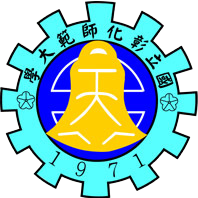SDG17.4.3 Education for SDGs in the wider community
1. Regarding the lifelong learning of sustainable development, NCUE holds educational activities and courses every year, allowing our teachers and students, the community, and the public to participate according to their further education and study needs. Despite the severe epidemic of Covid-19 in 2021, our school was still committed to planning and perfecting epidemic prevention measures, and adopting the method of distance teaching and physical courses to implement lifelong learning. We offered the following lifelong learning courses in 2021:
1.1 Multi-language learning courses : We offered multi-language learning courses, including English, Japanese, Korean, Vietnamese, and German, to allow residents to develop their second-language skills according to their interest in learning. In 2021, 21 classes were offered, with a course duration of 2,592 hours, and 722 people completed their studies.
1.2 Community college for the elderly:To provide opportunities for community elders to continue their studies, the Changhua County Elderly University was established by NCUE in 1995, encouraging people over 55 years to return to school. In 2021, a total of 12 classes were held , Including language, Chinese painting, calligraphy, art, computer and other types, totally 383 people completed courses.
1.3 Professional growth for secondary school teachers : Every year, in line with the Ministry of Education’s policy and further study needs of secondary school teachers, teachers’ second specialty and empowerment classes are set up to help in-service teachers improve their professional teaching skills. In 2021, 67 courses were offered, with 3,168 training hours and 1,420 participants.
1.4 In-service personnel Courses to increase professional skills:To assist in-service personnel in continuing their studies and improving their professional skills in the workplace, NCUE plans vocational training courses according to the needs of residents and local industries. In 2021, 85 classes were set up, with more than 3,606.5 training hours, helping 2,548 trainees improve their knowledge and skills.
1.5 Community Outreach Education Programs : We offered various types of education promotion courses covering business operations, information technology, enterprise management, marketing, and handicraft creation to allow people in the community to continue self-development according to their learning interests. In 2021, 56 classes were held, attracting 1,401 people to sign up.
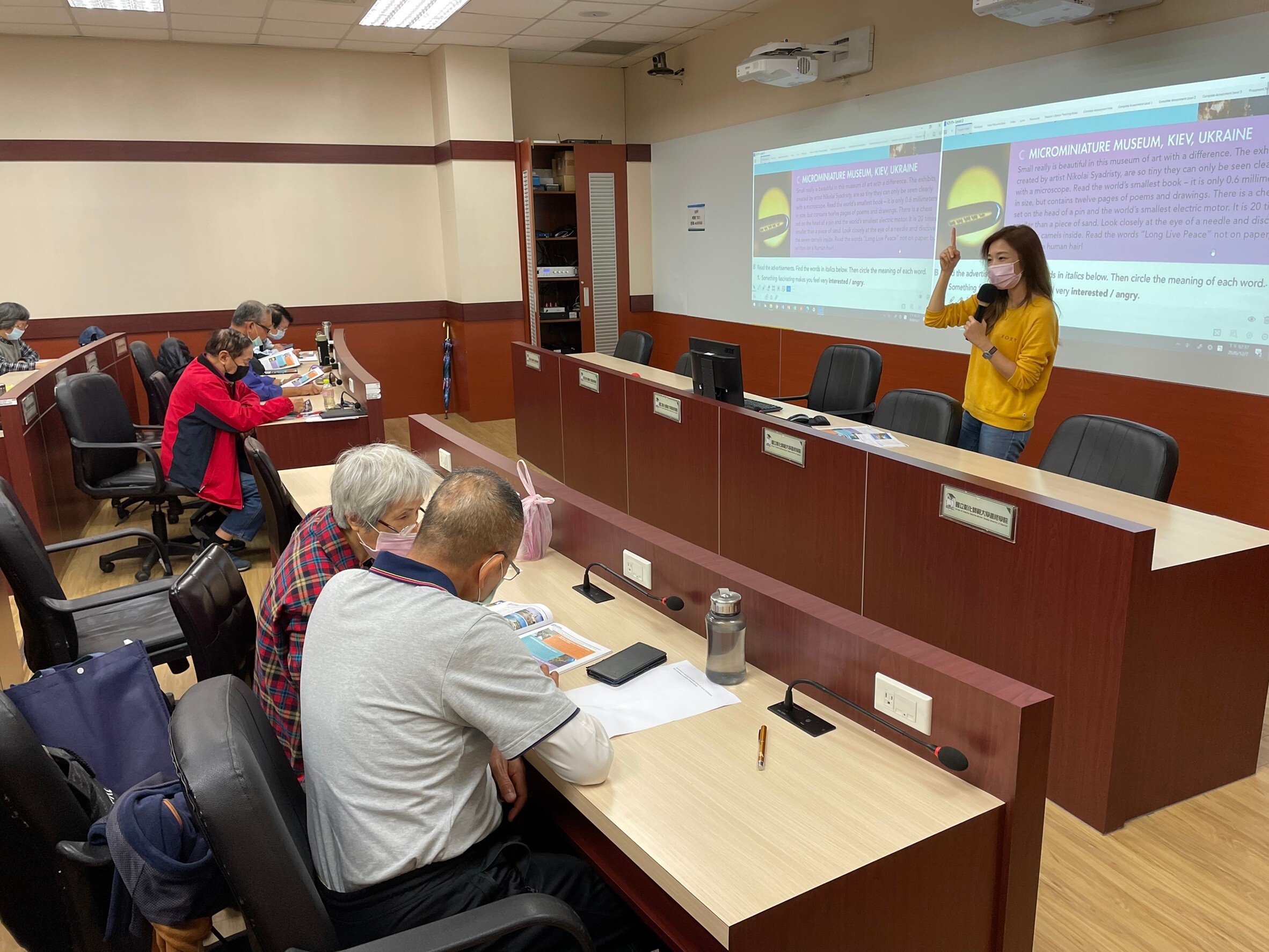
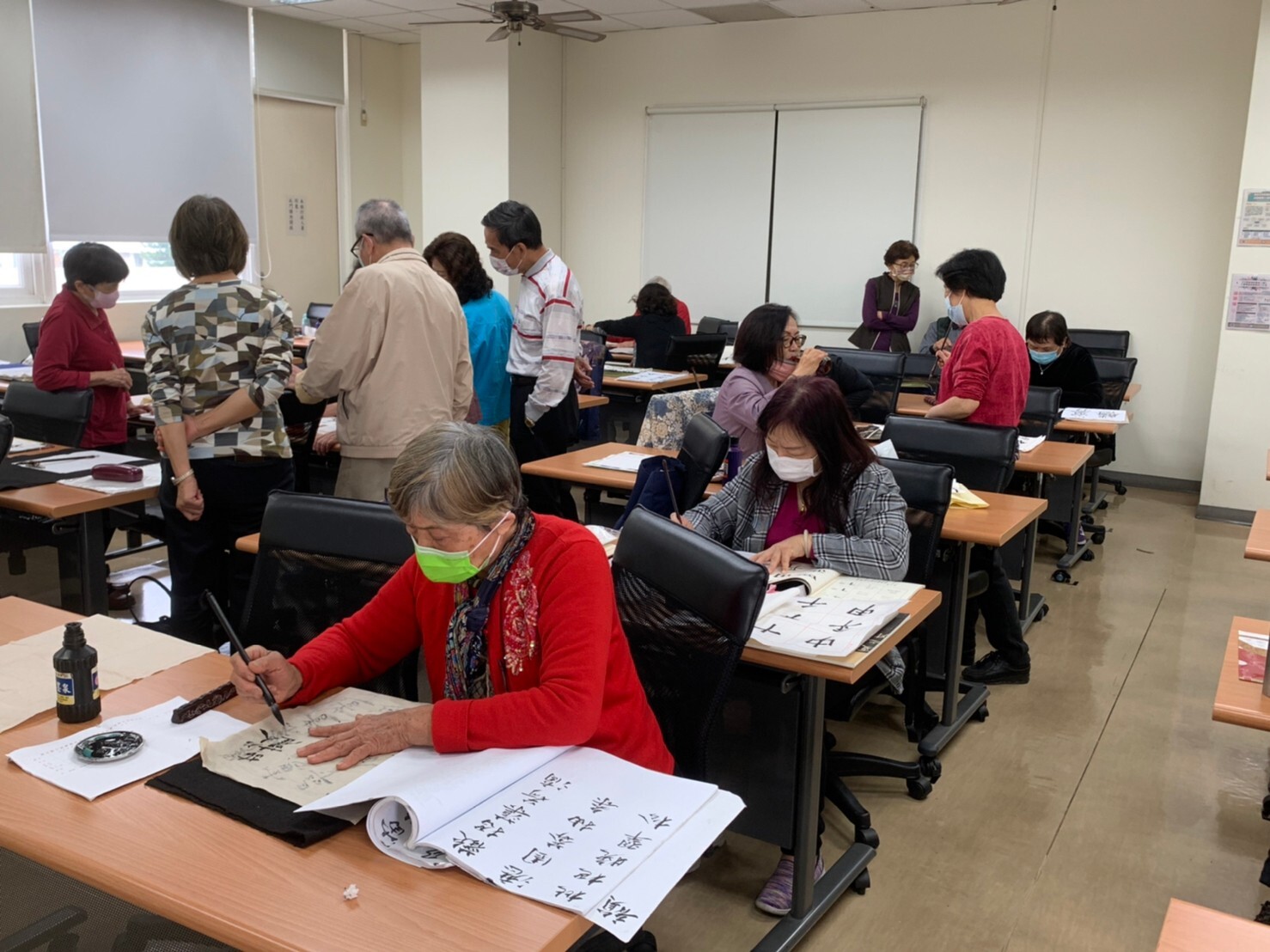
Figures 1 and 2: Evergreen Community College
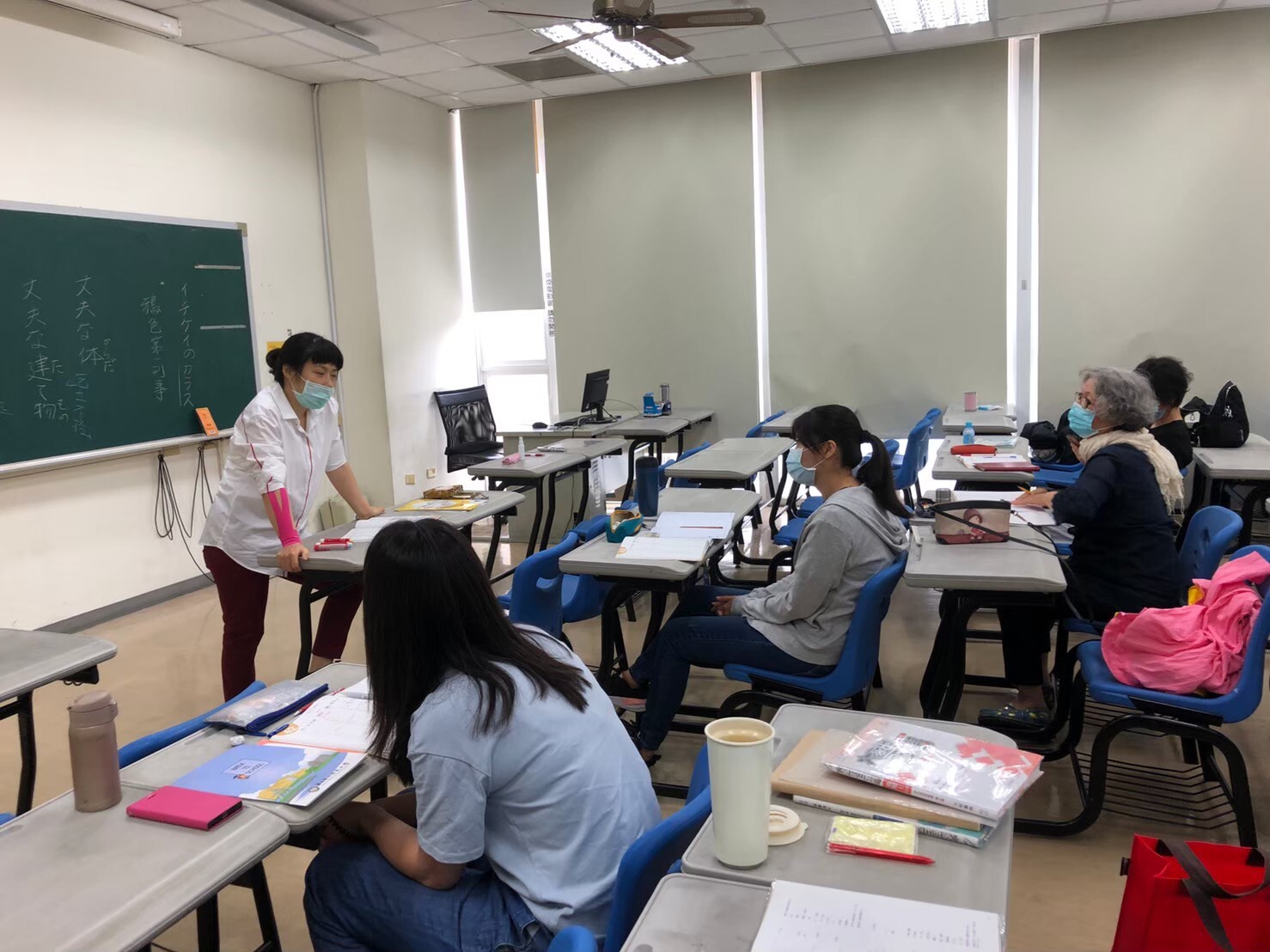
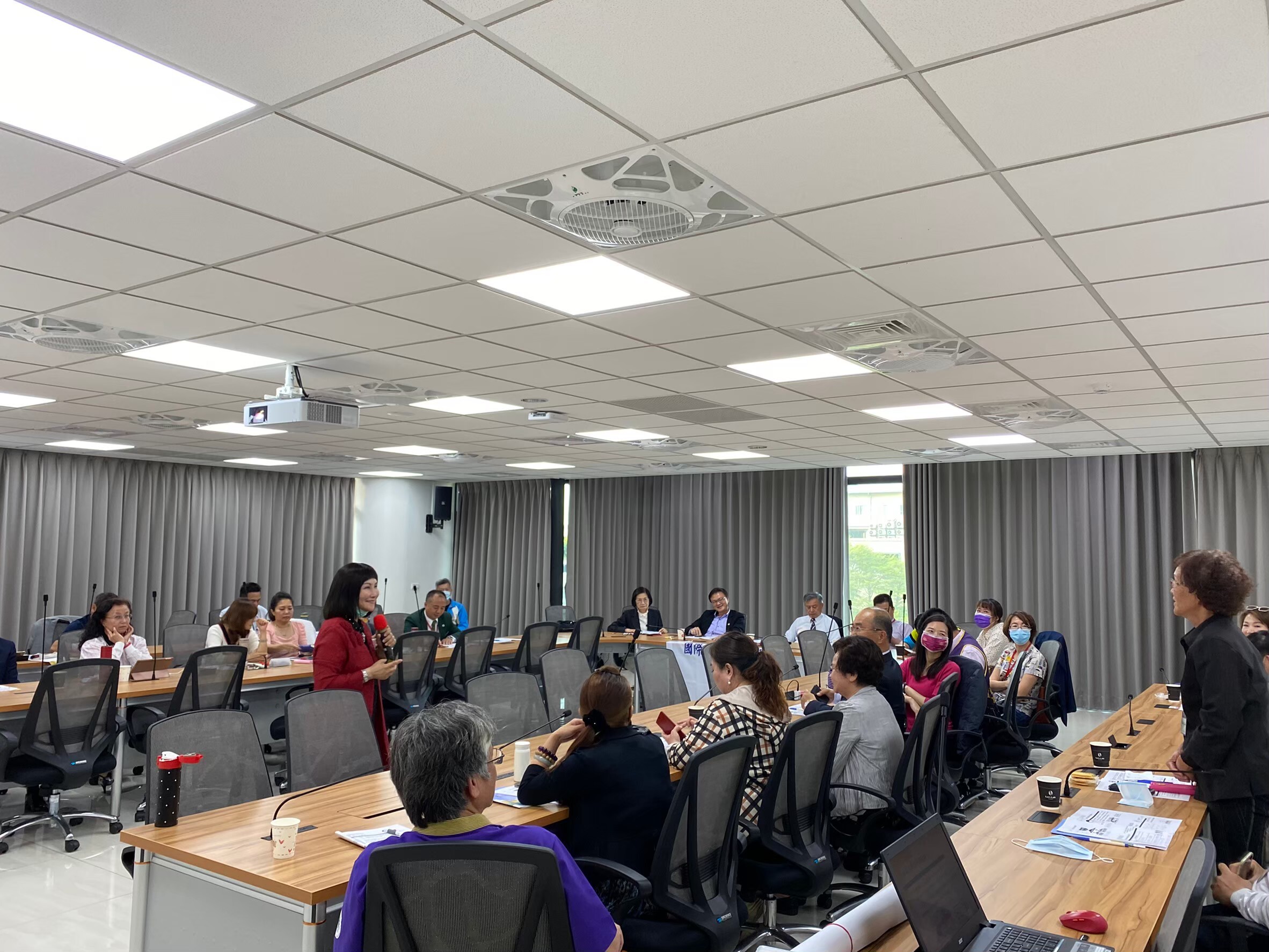
Figures 3 and 4: Workplace Enrichment Program
SDGs relevance: Good Health and Well-Being, Quality Education
2. Professor Meichun Lydia Wen of the Graduate Institute of Science Education implemented the Everyday Science for All program, which includes science camps for elementary and middle schools, workshops for in-service and pre-service teachers, and curriculum design outreach. Throughout the program, she discussed the curriculum content relevant to community and student life issues, including vector-borne mosquito diseases, air pollution control, yeast, and fermentation with elementary and middle school teachers. As such, the spirit of scientific inquiry and practical work were integrated to help the students reflect. Meanwhile, this project provided cross-disciplinary conceptual thinking that integrated biology, chemistry, physics, and geology to promote students' problem-solving skills, and applied the online science camp model to expand the curriculum to all corners of Taiwan.
SDGs relevance: Quality Education
3. The Environmental Education Center organized the "Green Vision in Dayou Community" project in September 2021, which was aided by the Environmental Protection Administration to develop a green energy curriculum and assist the Dayou Community in improving environmental education on green energy and green living via different green energy issues in the hope of promoting people’s understanding on green dieting, green home, or green energy.
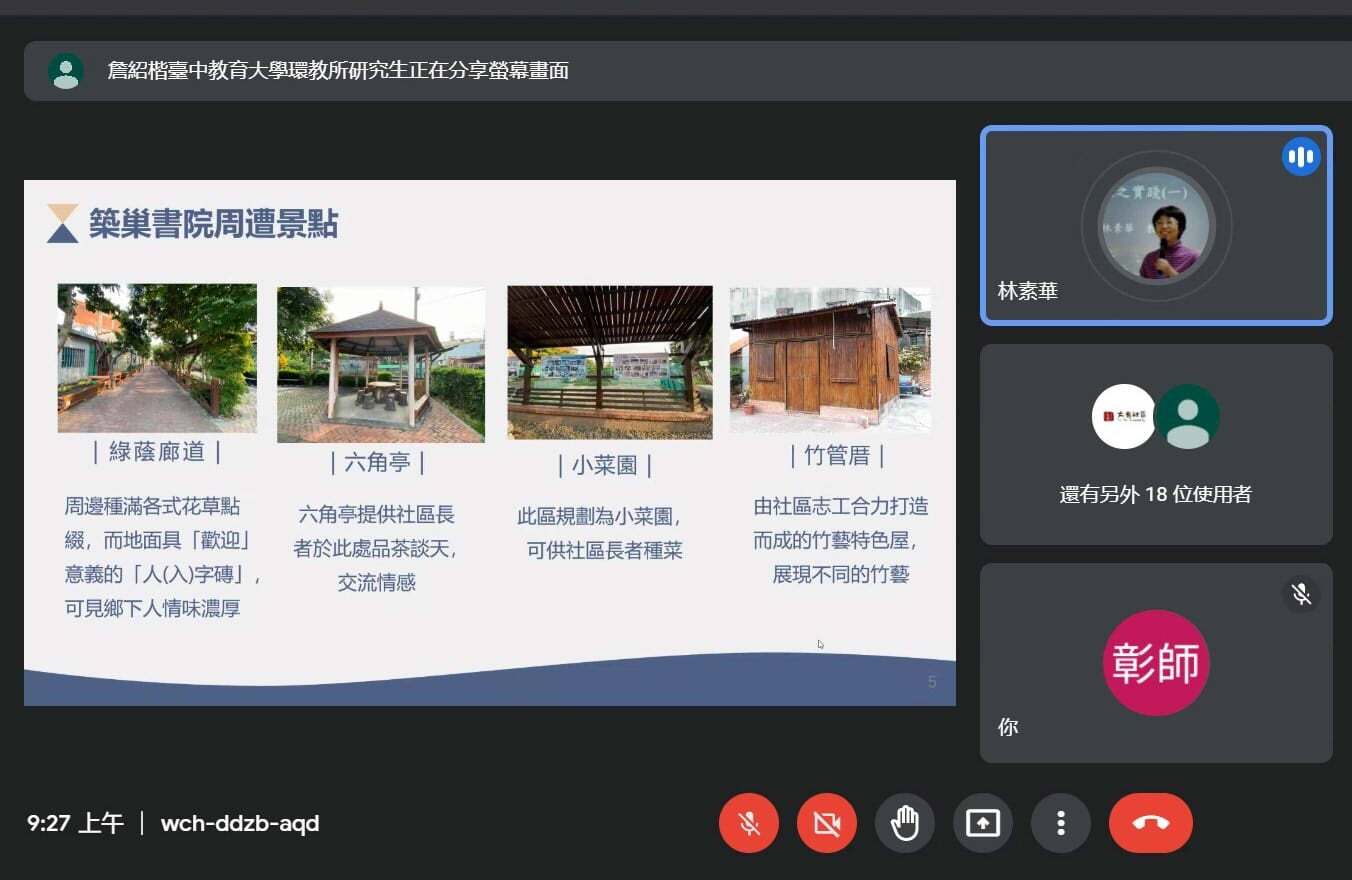
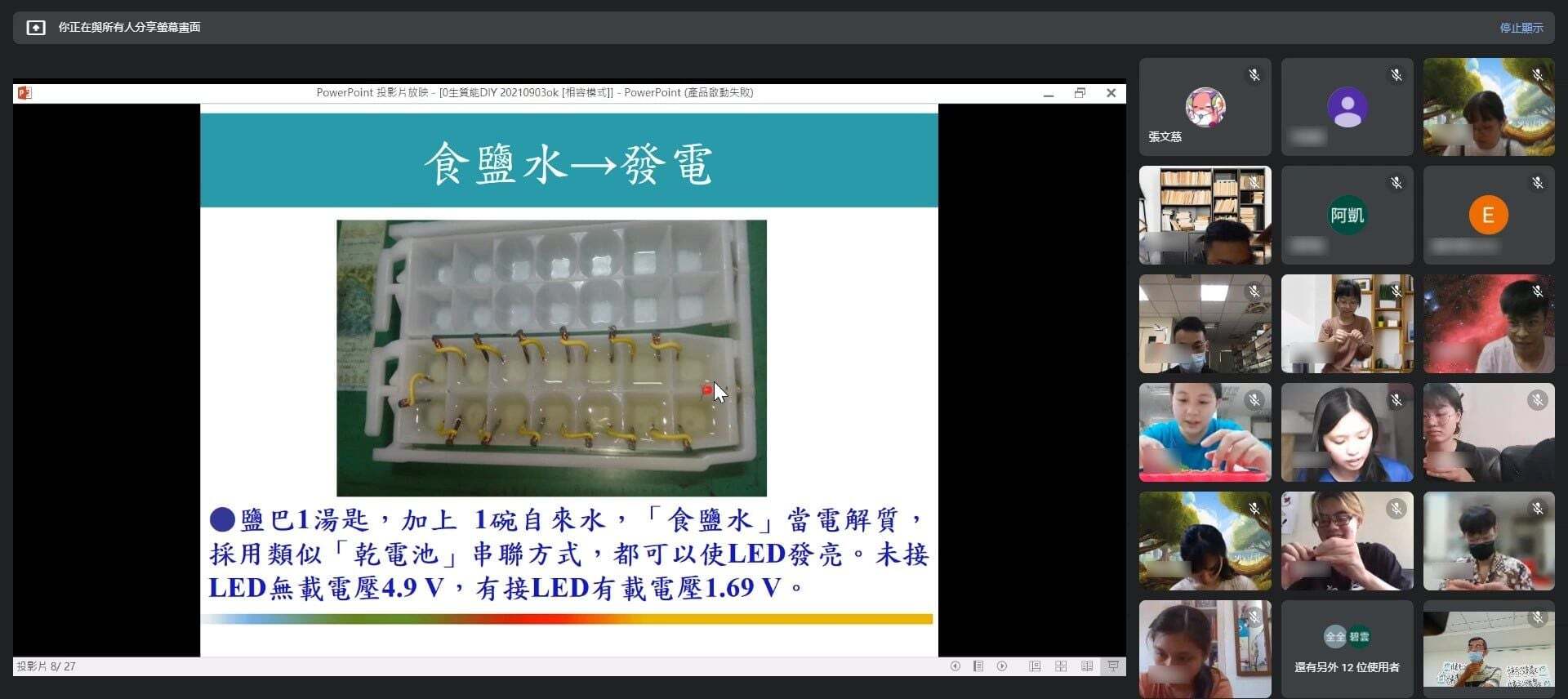
Figures 5 and 6: Green Vision in Dayou Community Project
SDGs relevance: Good Health and Well-Being, Sustainable Cities and Communities
4.The College of Science holds "Science Fun Day" every year to draw the public closer to science and enable them to understand that science knowledge can be gained not only from textbooks but also through life, and that they should learn to use science in their everyday lives. Moreover, the goal includes creating a better and quality educational environment for children in the rural areas of Changhua County to attain the goal of “helping every child attain success.” The measures include opening up the science laboratories of all departments in the College of Science, exhibiting science education teaching aids of the College of Engineering, and developing multiple fun science activities for students and the public. These activities include “Science Magic Zone," "Science Adventure Zone," "Science Exploration Zone," and other practical, fun science activities. They allow children to enjoy the science learning process by putting natural science principles to the test and learning about the importance of green energy and applying science in real life. Furthermore, the Baisha Carnival was organized in cooperation with MOE's Baisha x Common Good Education Program. A total of 14 schools participated in the event, showcasing their distinctive characteristics and the outcomes of the students' camps in rural schools. The event provided an engaging platform for rural schools and students to learn and present themselves. Websites of related activities: https://www.facebook.com/watch/?v=363345945566368
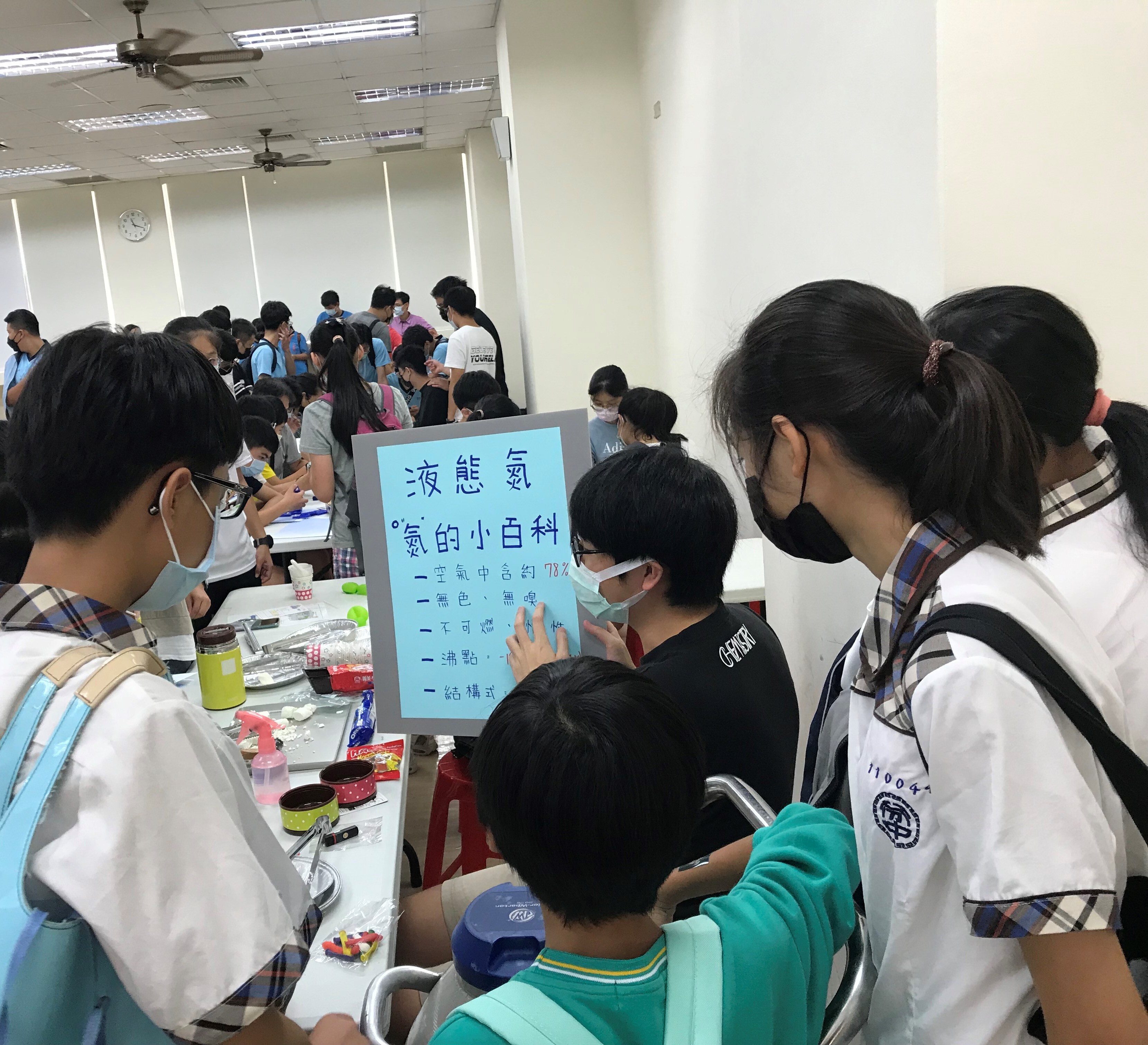

Figures 7 and 8: Science Fun Day at the College of Science
SDGs relevance: Good Health and Well-Being, Quality Education, Reduced Inequalities
5. The Special Education Center undertook the project entrusted and subsidized by the MOE. The project provided relevant support in terms of learning assistance, living assistance, school adjustment, and transition services to students with physical and mental disabilities. It also offered special education consultation services to schools within the counseling area and to the community, conducted special education knowledge workshops, arranged for visits to schools for special education, evaluated special education at the university/college level, and printed special education publications.
Regarding related services for students with physical and mental disabilities at NCUE, in 2021, the project provided a total of 1,663 services in academic support, 331 life support services, 67 career and transition services, and 124 guidance and counseling services. To enhance the special education knowledge of special education teachers, administrators, and related counselors for all levels of students in the counseling area, the Center conducts annual surveys to understand the needs of the frontline staff and plan professional knowledge activities, such as special education seminars, theme-based case studies, special case treatment, visits to excellent enterprises, and workshops in alignment with the MOE's special education policies and future development directions of special education. In 2021, a total of 19 professional knowledge activities were held, including 13 special education knowledge seminars, four theme-based case studies, one workshop, and one international conference.
The Center provided a special hotline service for community members, students, teachers, and counselors for all levels of students to address their respective issues, such as teaching, parenting, and counseling practices. The Center also conducted visits to special education schools within the areas under guidance to understand the implementation of special education at those schools. In addition, it regularly prints special education publications to facilitate the professional growth of special education teachers and related staff. It plans and conducts transition liaison meetings for students with physical and mental disabilities in universities/colleges and actively attempts to understand the status quo, limitations, and resource needs of each school in conducting transition counseling activities. In 2021, several goals were achieved, including conducting 43 special education counseling services, completing seven visits to schools, publishing two issues of the Special Educator's Journal, and organizing one counseling seminar for students with mental and physical disabilities as well as one liaison meeting in universities/colleges for students with mental and physical disabilities. Please refer to 17.4.3A, 17.4.3B, 17.4.3C for supporting information.
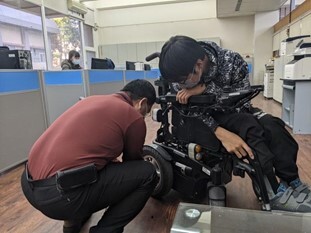
Figure 9: Assistive Device Center visited the school to conduct assistive device assessment
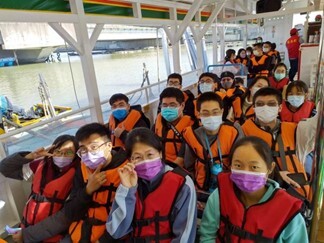
Figure 10: Outdoor teaching and experimental activities
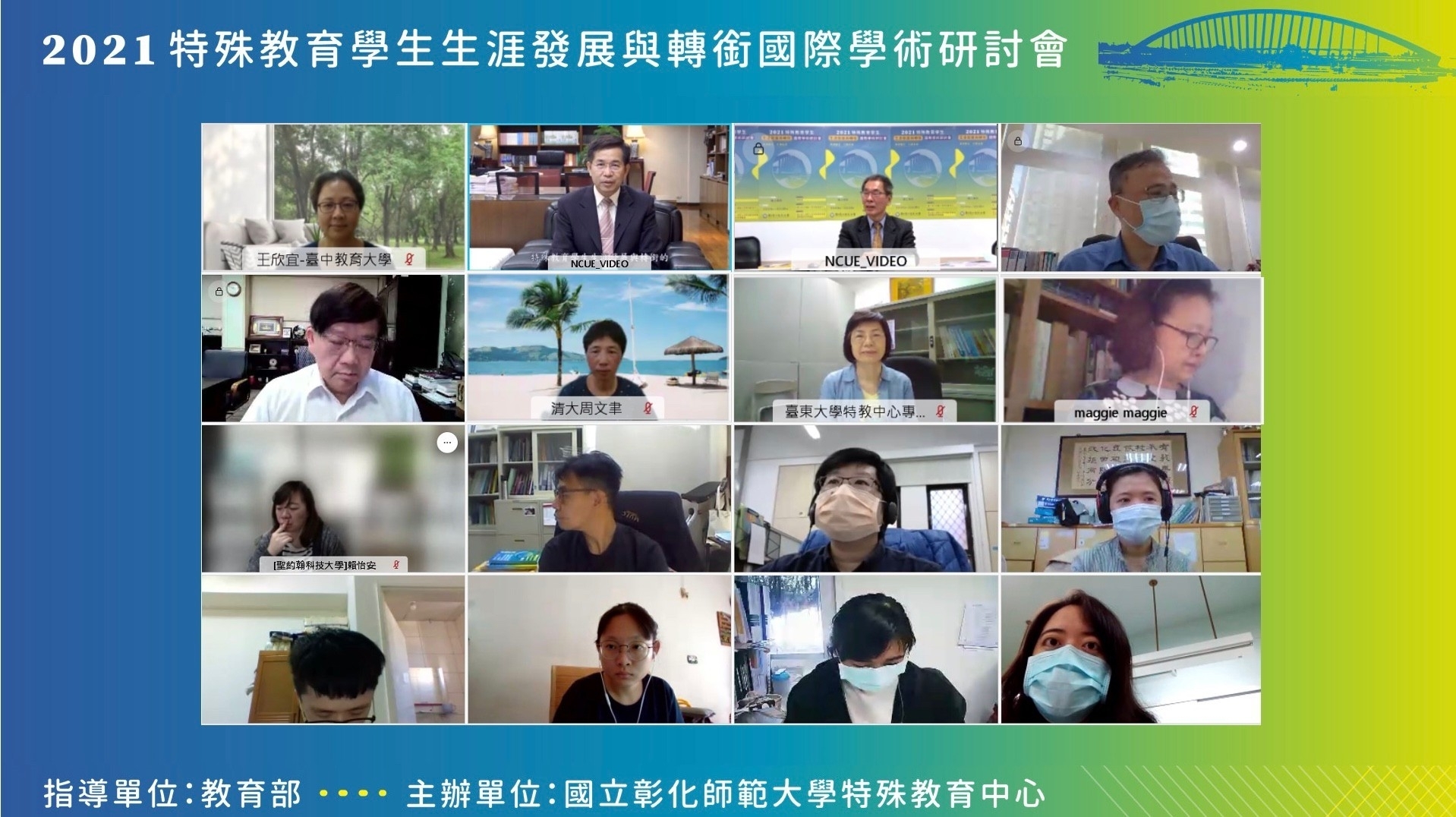
Figure 11: International Conference on Career Development and Transition of Special Needs Students
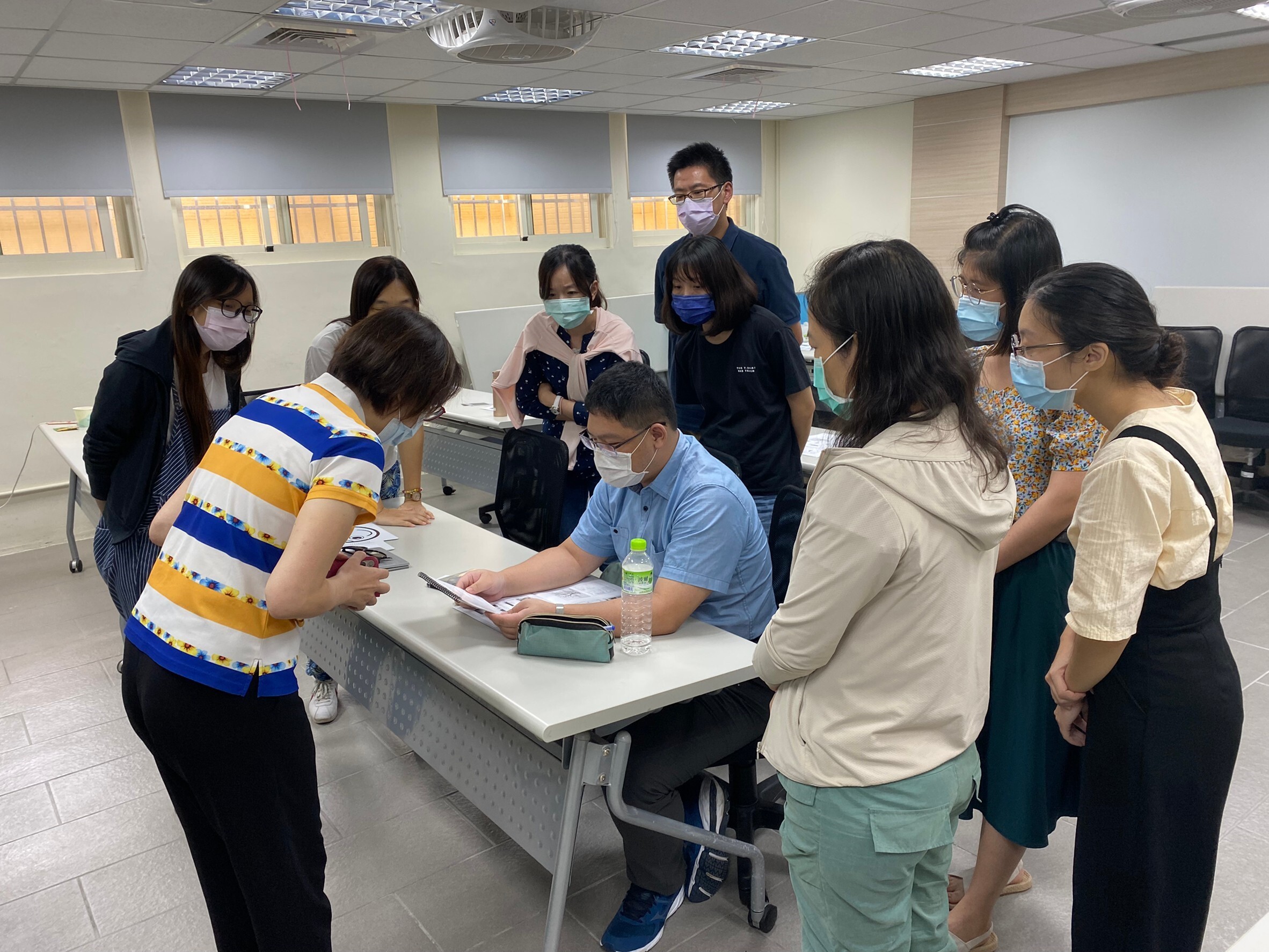
Figure 12: Workshop on Ability and Needs Assessment for Students with Visual Impairment
SDGs relevance: Good Health and Well-Being, Quality Education, Reduced Inequalities, Sustainable Cities and Communities
6. Professor Liang-Rui Chen of the College of Engineering implemented "Green Energy Technology Research and Education Program” and launched the "Energy Transformation: A Closer Look at Wind Power in Changhua” in collaboration with Orsted Taiwan Limited. The lesson plan was developed in accordance with the spirit of the 108 Curriculum of the MOE, which allows upper elementary students to understand the structure of power generation in Taiwan, learn about the structure and principles of the world's most advanced wind turbines, and complete the model assembly so as to cultivate a mindset of carbon reduction and sustainable development, as well as develop core literacy in line with the SDGs.
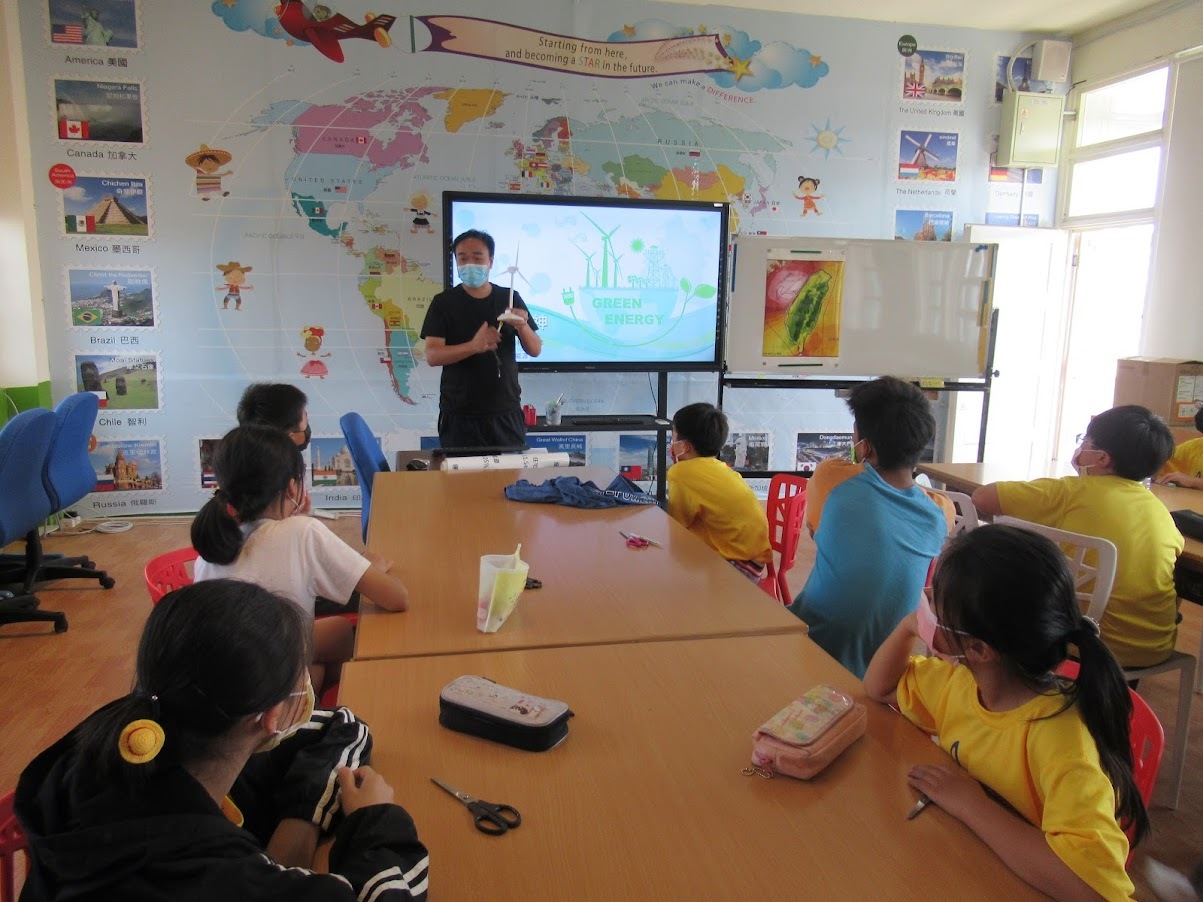
Figure 13: Green energy experience at Lushang Elementary School
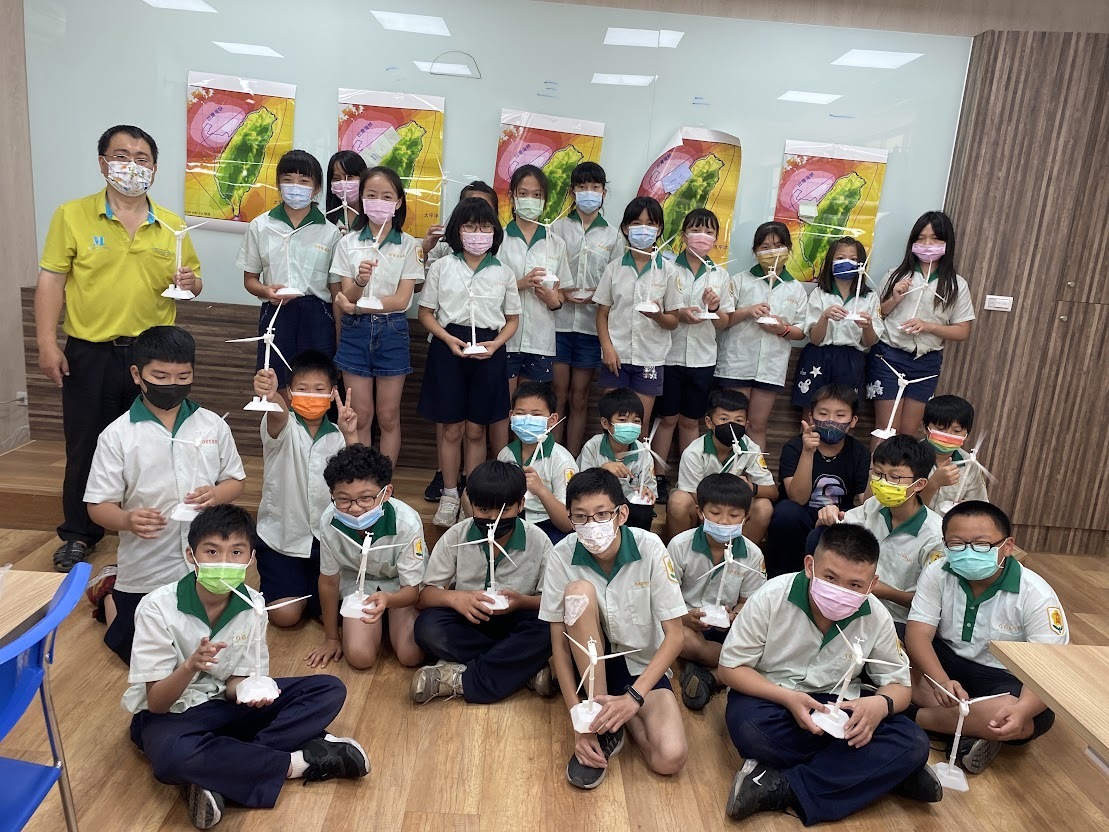
Figure 14: Group photo of Wenkai Elementary School
SDGs relevance: Good Health and Well-Being, Quality Education, Reduced Inequalities, Sustainable Cities and Communities
7. Professor Shan-Mao Chang of the College of Arts implemented the “2021-2024 Experimental Project for the Development of Appropriate Teaching Materials for High School English Language and Literature," which emphasizes the training of students' independent learning ability through the development of English audio-visual materials and promotion of platform-appropriate diagnosis for grades 10–12 in general and technical high schools. By providing free, high-quality educational content, the project aims to eliminate the M-shaped English learning gap caused by gender, family socio-economic status, learning level, and rural-urban differences in schools and to achieve goal 4 of sustainable development, that is, to ensure a non-discriminatory, equitable, and high-quality education and promote lifelong learning.
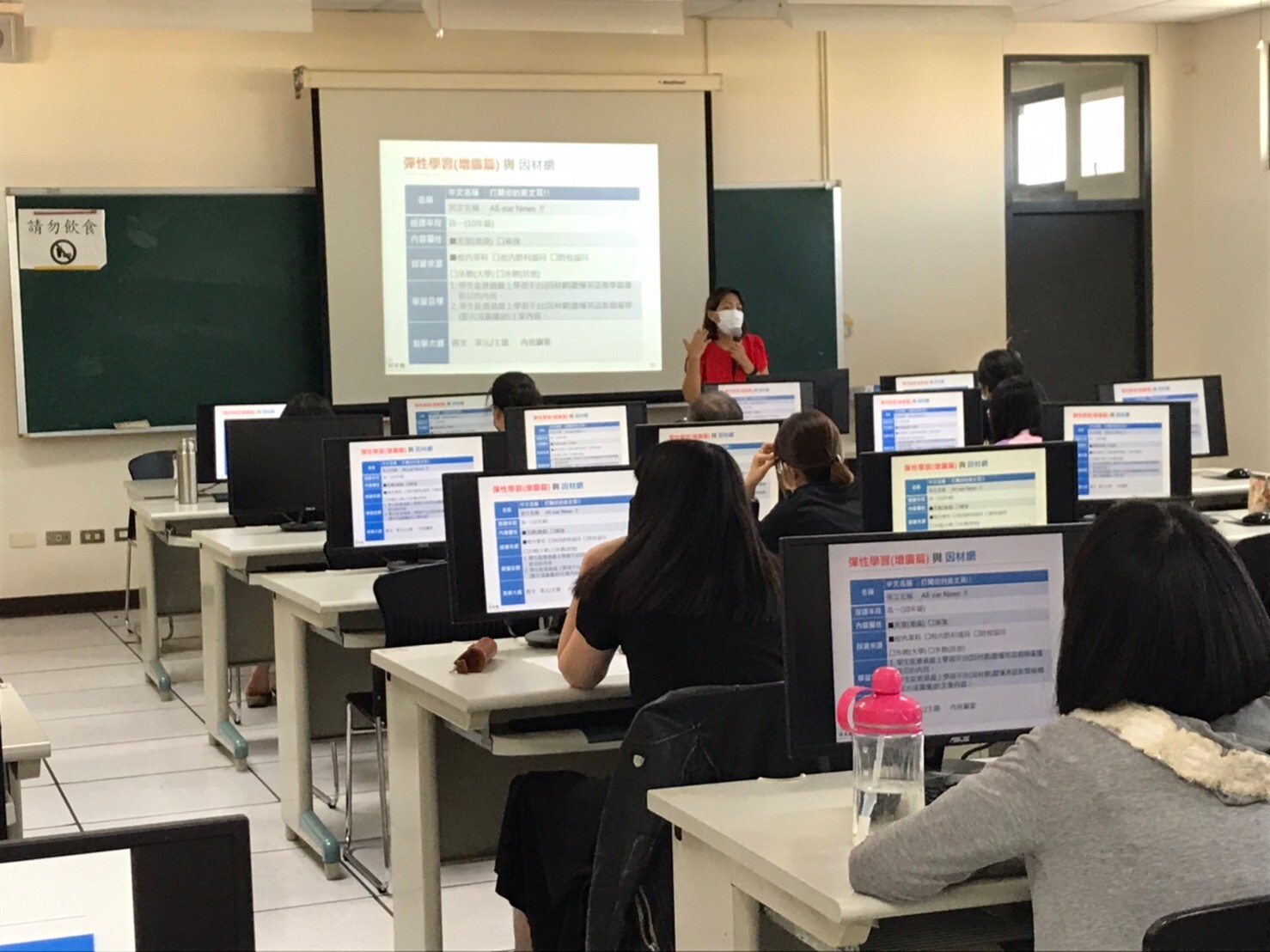
Figure 15: Promotional workshop
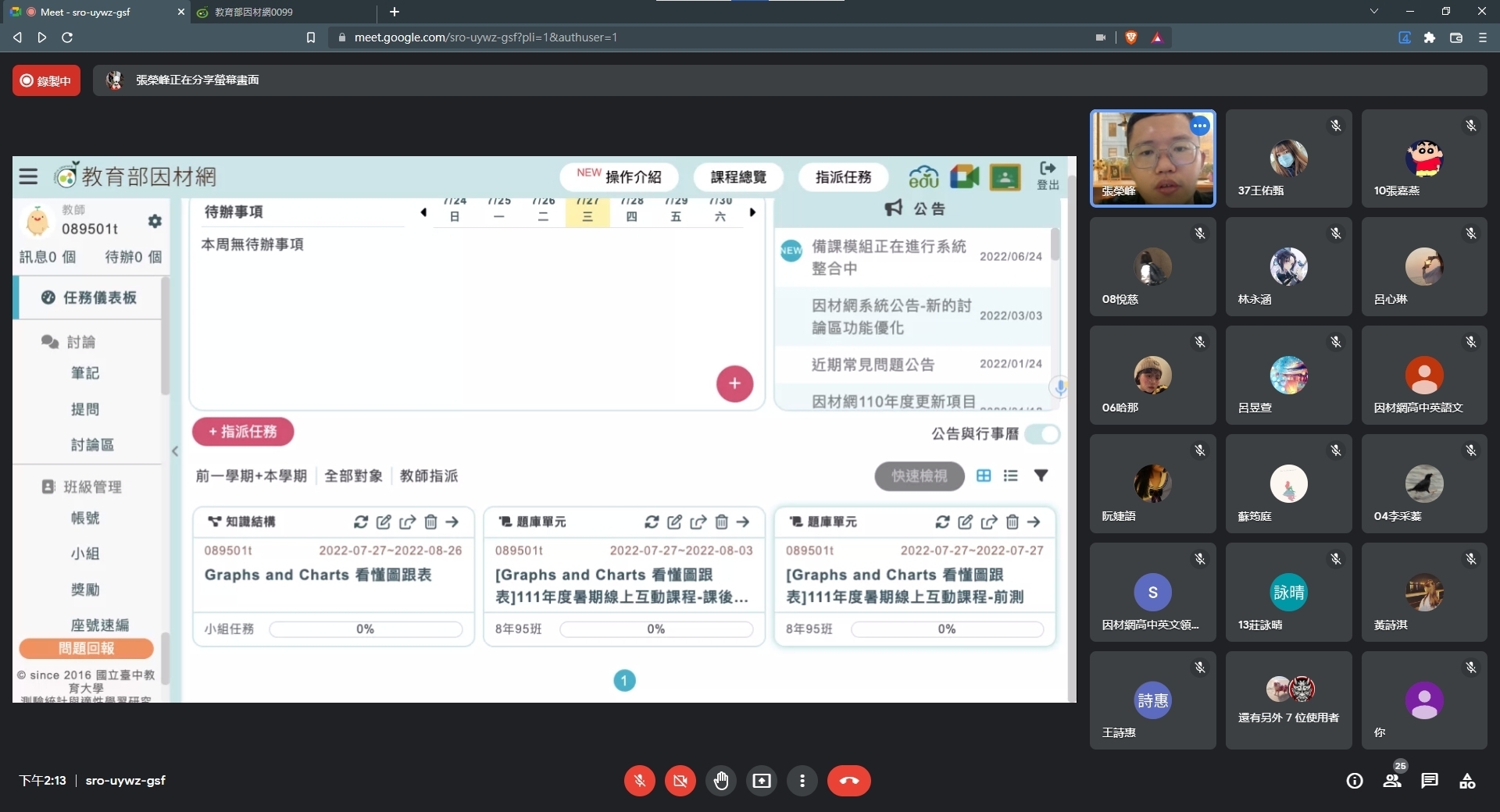
Figure 16: Summer Online Program
SDGs relevance: Quality Education, Reduced Inequalities
Appendix:
- 17.4.3A - 2021 Work Plan for Universities/Colleges to Recruit and Counsel Students with Physical and Mental Disabilities
- 17.4.3B - 2021 Implementation Plan for Special Education Work in the Identification and Placement Area in Changhua-Yunlin-Nantou Support District (Enhancement of Professional Knowledge)
- 17.4.3C - Special Education Center's 2021 Work Plan for Counseling Students with Physical and Mental Disabilities
